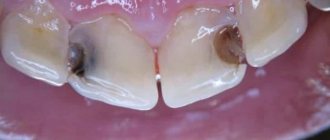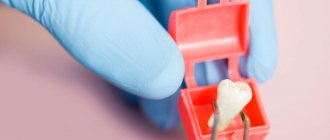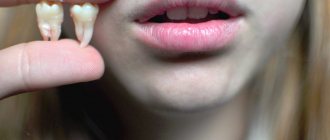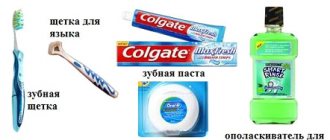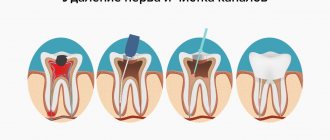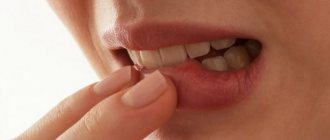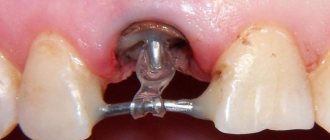A person can have toothache at any age, and there are quite a few reasons for this. The pain can be tugging and aching, strong and weak. Sometimes it is so intense that a person loses the ability to think adequately and is ready to do anything to calm it down. It happens that toothache occurs on weekends or at night. At this time, most dental clinics are closed, and all hope remains only at the duty reception points. In order to avoid a nervous breakdown from pain and other complications, you need to know exactly what to do and where to go with acute toothache.
Causes of trouble
Knowing the cause of toothache, you can decide where to go. For example, if a child has acute pain, you need to understand that he may be teething. In this case, not only the dentist, but also the pediatrician can help. Adults have many more reasons for acute toothache.
First of all, this is inflammation of the root with the accumulation of pus on the periosteum and in the soft tissues of the gums. This phenomenon is called flux. It manifests itself not only as acute pain, but also as swelling of the gums with a visible bulge under the cheek.
Another reason is deep caries. The disease is characterized by the formation of a hollow in the tooth that reaches the pulp, which contains blood vessels and a nerve. Hence the severe pain in the tooth.
A person may have periodontal disease or other gum disease. It is accompanied by loosening of teeth and acute pain.
Toothache during pregnancy
It is possible to treat pulpitis and acute periodontitis during pregnancy, since a prolonged inflammatory process and purulent inflammation can harm the fetus. According to recent studies, restrictions on therapy may only be in the first trimester, especially during the first 8 weeks, but the doctor makes a decision on a case-by-case basis.
Treatment during pregnancy is carried out under local anesthesia, for which approved drugs are used, such as Lidocaine and Ultracaine DS.
Consequences of the disease
If a person has not decided where to go with an acute toothache, or simply decided not to go and be patient, then he will definitely have complications with his teeth in the future.
With caries, this is deep pulpitis, the nerve and blood vessels are completely destroyed and subsequently the tooth is destroyed into small fragments and falls out.
If the pain is the result of an abscess on the root of the tooth, then in this case meningitis and the formation of phlegmon can become a complication, since pus can easily rise through the facial sinuses to the brain. Thus, if in this situation the tooth is not treated in time and the inflammation is not eliminated, then the person may suffer premature death.
In what cases is a tooth removed?
Due to the development of new materials and technologies for dental treatment, implantation and prosthetics, indications for the removal of teeth and roots are constantly decreasing. However, when the degree of destruction of teeth and surrounding bone tissue is such that there is no other option, the clinical experience of doctors systematizes the following main reasons for removal:
- Atrophy of bone tissue by more than 70% of the length of the tooth root
- Tooth mobility of 3-4 degrees with periodontitis
- Destruction of hard tooth tissues by more than 70%
- The presence of a growing root cyst, measuring 7 mm or more, which could not be cured therapeutically or surgically, with or without a fistula
- For orthodontic indications, for the treatment of malocclusion
- Retention of a tooth, in which it causes harm to its neighbors (crooked wisdom tooth)
- Supernumerary teeth
- Milk teeth remaining in adults in the absence of permanent tooth buds for the purpose of installing implants
- Tooth roots that are not subject to treatment and prosthetics
- Removal of decayed teeth during pregnancy
The most common reason for urgent tooth extraction is acute inflammatory diseases. In advanced cases, it begins to completely collapse. There is pus, an abscess, and swollen gums. Without removal, the infection can spread throughout the body, causing severe harm. With periodontitis, the tooth begins to loosen, and it is also immediately removed.
We invite you to familiarize yourself with Ultracain d-s solution: instructions for use
Only the doctor decides whether to remove a tooth or not. It is mandatory to pull out those teeth that cannot be saved, as well as those that harm neighboring teeth and the body as a whole.
Pain relief with medications
If the question of where to go with acute toothache at night or on weekends remains open, then you can relieve the pain with medications.
The use of drugs will not help cure the tooth, this is impossible in principle, but you can temporarily relieve the pain until you visit a doctor.
In addition, medications are used after treatment, for example, to relieve inflammation, the patient is prescribed an antibiotic. Analgin, Paracetamol, Pokadon or Fanigan are good for pain relief.
You need to follow the dosage, no matter how much the tooth hurts, a large number of tablets will not help. But it is possible to dull the sensitivity of a tooth to the anesthetic used by dentists. That is, if you take 5-6 Analgin tablets per night, then in the morning in the dentist’s office the patient will experience severe pain during treatment, since neither Lidocaine, nor Ultracaine, nor any or another pain reliever.
Tooth root removal with implant installation
Situations where a tooth is pulled out and the root remains are not uncommon. How is a tooth root removed, and in what cases is it required?
Removal of a rotten tooth root, with a cyst or granuloma is done in the following cases:
- for root caries
- if it is impossible to unfill the root canal to install an inlay and crown
- with root mobility stage 3-4
- in the presence of a growing granuloma or cyst
How is a tooth removed if only the root remains? How difficult is it to remove a tooth root?
The process of removing dental roots itself differs from dental extraction in that elevators are more often used instead of forceps, and it is also necessary to create gaps in the bone walls of the root socket for insertion and support of the elevator. The individual root is rotated and rocked, and pushed out.
Just like tooth extraction, tooth root extraction from the jaws is an absolutely painless procedure, which is carried out under local anesthesia for approximately ten to thirty minutes. After removing the root of a tooth, you must strictly follow all the instructions of the dentist.
We suggest you read Why the lymph nodes in the neck become inflamed and what to do about it
If you need to remove a tooth root, the price in Vladimir starts from 2,000 rubles and can reach 15,000 or more for removing a broken root located in the maxillary sinus.
Thanks to modern technologies and materials, in recent years it has become possible to perform planned extraction of a tooth or root, with immediate installation of an implant in the bone socket. In other words, the operation is one-stage implantation.
To implement this manipulation, certain conditions are required:
- Sufficient bone density and mineralization
- Sufficient bone volume
- Implants specifically designed for this purpose
- Auxiliary bone-active substances, osteogenesis stimulators
Carrying out such an operation allows you to reduce the number of operations from three to one, and also speed up dental prosthetics by half.
Dental treatment
Teeth cannot be treated with conservative methods; you cannot take a pill and thereby cure the tooth. Any treatment involves removing the entire diseased tooth or its affected part.
If everything is clear about the removal - this is done by a surgeon in any dental clinic - then treatment may take some time.
You need to understand that pain is eliminated first. The doctor drills out the diseased tooth in order to remove the affected tissue, and, if necessary, the inflamed nerve and vessels located in the pulp. To do this, it is opened with a special drill. After this procedure, the tooth will never hurt again. Then the root canal and the tooth itself are filled. At this stage, the doctor may place a temporary filling to give time for inflammation to subside and pus to drain. If the canal is clean and there is no inflammation, then the filling is installed on a permanent basis.
Modern medicine has developed such effective painkillers that the entire procedure takes place absolutely without any discomfort. For those people who do not tolerate injections into the gums well, special freezing agents are used. Thus, going to the dentist has ceased to be a serious test for the human psyche.
Dental treatment required - how to get to a doctor
Despite the restrictions in force in Moscow and other Russian cities, some cases of dental treatment are allowed even during the quarantine period. However, the rule here is the same - you can see a doctor if the tooth “decides” to hurt acutely, with twitching, pulsation, or swelling appears.
Typically, these signs directly indicate the development of an acute infectious or inflammatory process. Such symptoms, for example, are distinguished by acute pulpitis, periodontitis, and periostitis.
Despite the fact that there is a quarantine on the street, and self-isolation for visitors, acute pain remains a good reason to see a doctor. In total, doctors distinguish 3 types of medical care:
- Emergency - failure to provide assistance can lead to death.
- Urgent - there is no direct threat to life, but complications may occur.
- Planned – visits to the clinic are carried out to prevent oral diseases.
During the high-risk period, dentists at the President clinic treat cases 1 and 2, when the pain is severe, and there is no need to hope that everything will go away on its own or that painkillers will help. You should consult a doctor immediately. Help is provided to the patient immediately after treatment. As for scheduled inspections, they have been suspended for the period of introduction of restrictive measures.
Where can you go if you have an acute toothache?
The answer to this question is incredibly important, because toothache is one of the most difficult to bear. Where to go if you have an acute toothache on the weekend or at night? Every city has a help desk that operates 24 hours a day. Through it you can find out the address of the nearest on-duty dental clinic.
In every district of a large city there are district dental clinics that serve citizens living in that area. At night, the patient can go to the on-duty clinic, and his place of registration does not matter.
If the city is small and does not have a dental clinic on duty, then you can go to a regular emergency room. They won’t be able to cure the tooth, but they will definitely help relieve the pain.
If the city's helpline number is unknown or it simply does not exist, then you can call an ambulance. It will not be possible to call a team to your home, but the dispatcher on duty can suggest the nearest emergency room where they can help relieve pain.
Folk remedies for toothache
When pain strikes a person suddenly at night, all the nearest pharmacies are closed, and there is no usual painkiller at home, in this case you can resort to eliminating unpleasant sensations with folk remedies. These methods will relieve pain temporarily. Even if you managed to relieve swelling of the gums with the help of rinses, you will still need to go to the doctor, because the treatment involves drilling out a canal and filling the tooth. And in severe cases, installation of drainage to release pus from the root space.
Why does toothache worsen at night?
Regarding physiology, the main factor is high blood pressure. At night, all people (including completely healthy) blood pressure increases. Increased blood flow puts pressure on the head and jaw, increasing pain. The horizontal position during sleep further increases blood flow to the upper body, aggravating the situation. Under normal and healthy conditions, a person cannot feel an increase in pressure at night, but a bad tooth will make itself felt.
From the point of view of psychology, during the day we are constantly busy with something, immersed in business and worries. During the day, people are distracted from the annoying tooth, at night a person relaxes, worries are left behind, and our body becomes especially susceptible to pain of a different nature.
Recipes
There are several ways to relieve pain until the morning:
- Rinse your mouth with strong black tea with grated garlic added to it. Ratio of ingredients in the composition: add 2 tbsp to 0.5 liters of water. spoons of tea leaves and 5 cloves of garlic. The product can be used frequently, but it usually helps from the first rinse.
- Toothache can be easily relieved with a compress applied directly to the tooth. To prepare the mixture you will need garlic, onion and salt. The ratio of ingredients is equal. In this case, garlic and onions need to be grated. To ensure that the resulting paste remains on the tooth, you need to place a cotton swab on top of it. Usually, after 3 to 5 applications of such a compress, the pain quickly goes away.
- Pain can be relieved with a solution of iodine, salt and water. You can rinse your mouth with the resulting product any number of times until the tooth passes. The recipe is simple: you need to add 7 drops of iodine and 1 teaspoon of salt to a glass of warm water. To stir thoroughly.
- It is possible to quickly relieve pain with the help of valerian tincture. You don’t need to drink it, just place a few drops on a cotton swab and apply it to the sore tooth. The effect of the compress begins within a few seconds.
Pharmacy products
To reduce pain, you need to soak a cotton swab with medicine and insert it into the carious cavity.
On the pharmaceutical market you can purchase special dental drops that help reduce the severity of toothache, but this is a temporary measure.
This is an alternative solution to tablet analgesics.
These pharmacological agents are used topically, directly on the affected tooth, while tablets have an effect on the entire body. Dental drops can be used even by children over 12 years of age.
Despite the variety, all the drops presented in the pharmacy have the same composition (peppermint oil, valerian tincture, racemic camphor) and are in almost the same price segment.
To reduce pain, you need to soak a cotton swab with medicine and insert it into the carious cavity; the procedure lasts 5-10 minutes.
It is recommended to rinse the mouth to reduce pain with a soda solution, saline solution (1 teaspoon of sea salt per 1 glass of water) or a decoction of chamomile, which is prepared from 1 tbsp. l phyto-raw materials and one glass of water.
A good result is achieved by using 3% hydrogen peroxide, adding ½ tbsp to one glass of water. l. pharmaceutical product.
The main rule is not to heat the problem area. A heating pad with hot water should be avoided, but a bottle of ice-cold liquid or even regular ice can help. It is enough to simply suck on an ice cube, and if this does not help, you will have to apply a cold source directly to the gum or to the cheek near the sore tooth.
We invite you to familiarize yourself with Herpes in men and related problems and complications
Various mouthwashes should help. The simplest recipes are solutions of soda or salt. For one glass of warm boiled water, just one teaspoon of table salt or ordinary soda is enough. You need to rinse your mouth every half hour; the pain, if it does not completely disappear, will at least weaken.
If you have various mixtures of dry herbs at home, you can use them. For example, sage is popular for relieving dental discomfort. Three to four tablespoons of dry herbs are added to a glass of boiling water; the decoction should sit for about 20 minutes. After the liquid has cooled, you can rinse your mouth or make a compress - apply a cotton swab dipped in the broth directly to the gum.
Other herbs will also be effective - decoctions of calendula or chamomile, and with the help of calamus you can get rid of not only unpleasant sensations, but also stop bleeding gums. You can soak a cotton swab in tinctures of valerian or eucalyptus; propolis will also be useful. These methods are especially effective if the pain is caused by the presence of a deep carious cavity - a cotton swab should be placed there.
A fresh aloe leaf will be a good helper. The sheet needs to be divided in half. If the pain is tolerable when chewing, half the pulp of the plant is chewed, the second half is applied along the gum for several minutes.
Pain in the tooth area is a common reason for visiting the dentist. When a tooth hurts, it is difficult to concentrate, therefore performance, mood and sleep are disrupted.
Pain in the teeth occurs among people of the middle and older generations. Indeed, with age, the frequency of inflammatory processes in the oral cavity and the level of general morbidity increase. Tooth pain is more typical for residents of large cities such as Moscow, St. Petersburg, and New York. This is associated with stress and poor nutrition of the inhabitants of these megacities.
Toothache in children
Many parents have a question: where to go if their child has acute toothache? In rare cases, young children develop deep pulpitis or other adult diseases. After all, most baby teeth do not have pulp, and their roots are shallow, since these are temporary teeth.
Moreover, such pain in children is often accompanied by an increase in temperature, so the answer to this question is obvious: you need to contact a pediatrician - a pediatrician. If a child really has a toothache due to inflammation of the root and periosteum of the jaw, then he should be urgently taken to a children's dental clinic.
Causes of tooth pain
The tooth hurts due to changes in the tissues surrounding it or due to diseases of other organs. In the first case, the mechanism for the formation of pain is simple: during inflammation, the tissue swells and puts pressure on the nerve endings.
- Carious lesions of enamel and deep tooth structures. In this case, the syndrome occurs in response to chemical or physical (heat, cold) stimuli.
- Exposure of the cervical part of the tooth due to inflammatory processes in the gums. The neck of the tooth is not protected by enamel, which leads to rapid penetration of infection to the nerve fibers.
- Violation of the integrity of the filling or incorrect filling technique.
- Microcracks in the enamel due to injury or ingestion of food that is too cold or hot.
- Pulpitis is an inflammatory process in the central part of the tooth, where a branch of nerve and blood vessels passes.
- Periodontitis is an inflammation of all structures that support the tooth.
Pain of extraoral origin, or odontalgia, is associated with reflex irritation of the nerves of the oral cavity when fibers of another localization are excited.
It accompanies such serious problems as angina pectoris or acute myocardial infarction, tumor diseases.
The causes of odontalgia are otitis media of the middle ear, inflammation of the salivary glands, trigeminal and facial neuralgia, and sinusitis. Some psychiatric illnesses manifest as physical symptoms, such as tooth pain. The state of the nervous system affects the subjective assessment of sensations and often becomes the reason for incorrect diagnosis.
Toothache is a consequence of damage to the nerve located in the tooth or nearby tissues. Usually it manifests itself acutely, unexpectedly, spreading to part of the head. Pressing or applying heat can cause shooting or throbbing pain.
Discomfort most often occurs at night. A number of factors contribute to this:
- in a relaxed state, we feel pain more strongly because we are busy during the day;
- during sleep, the level of glucocorticoid hormones in the body decreases, which reduce the sensitivity of the nerves;
- in a horizontal position, more blood flows to the jaw, increasing pressure on the tooth.
Pain most often occurs due to the development of the disease:
- Deep caries, cracks in teeth and incorrectly installed fillings, which leads to infection and inflammation.
- Pulpitis. The pain appears in attacks and may be aching in nature. The main symptom of the disease is the irradiation of pain in the area of the temple, ear, it is impossible to endure it for a long time.
- Periodontitis. Constant aching, sharp pain intensifies when you touch the tooth. The tissues of its apex are inflamed, the gums are swollen.
First aid for a child with toothache
As first aid for acute pain, the child should rinse his mouth with chamomile decoction or iodine-saline solution. These are neutral liquids, and if the baby swallows them, nothing bad will happen.
If rinsing does not help, you can give your child children's Paracetamol or Ibuprofen.
If pain occurs during teething, you can relieve it with a special rubber ring, pre-cooled. Cold relieves swelling and reduces sensitivity. If the ring is not found in the middle of the night, a cold apple or carrot will do.
Where to go for acute toothache
Based on positive reviews of the work of dental clinics, a list was compiled for several large cities of the country.
Where to go with acute toothache in Moscow:
- Clinic "Dantistoff" on Akademicheskaya metro station, Vinokurova street, 2. Prices for services from 700 to 1800 rubles.
- “Rockclinic” at Butyrskaya metro station, 17th Maryina Roshcha passage. Prices for services range from 500 to 1000 rubles.
- “Ilatan” on Babushkinskaya metro station, Dezhneva proezd, 19, building 1, 1st floor. Prices for services range from 3500 to 4500 rubles.
- NL-Clinic at metro station Novye Cheryomushki, Profsoyuznaya street, 64, building 2, residential complex "Dirigible". Prices for services range from 2500 to 4000 rubles.
- “Sanmedexpert” at Baumanskaya metro station, Bolshoi Demidovsky Lane, 17/1. Prices for services range from 800 to 3400 rubles.
Where to go with acute toothache in St. Petersburg:
- "RosDent" on metro station Prospekt Veteranov, Prospekt Veteranov, 108, 1st floor. Prices for services range from 300 to 3800 rubles.
- “Your favorite dentist” at metro station Prospekt Prosveshcheniya, Prospekt Prosveshcheniya, 30, building 1, 1st floor. Prices for services range from 3500 to 4500 rubles.
- “Masterdent” at Akademicheskaya metro station, Nauki prospekt, 17, building 2, 1st floor. Prices for services range from 3,000 to 5,000 rubles.
- “Nord Dental” on Akademicheskaya metro station, Butlerova street, 11, building 4. Prices for services from 500 to 8000 rubles.
- “My Zubnoy” at Ozerki metro station, Khudozhnikov Avenue, 12, 1st floor. Prices for services range from 300 to 8000 rubles.
Where to go with acute toothache in Yekaterinburg:
- “Continent-dent” at metro station Ploshchad 1905 Goda, Lenin Avenue, 50 B, office 216, 2nd floor. Prices for services range from 400 to 3600 rubles.
- “White Pearl” on Krasnolesya Street, 123. Prices for services range from 250 to 4000 rubles.
- “MKS Dentistry” at Chkalovskaya metro station, Soyuznaya street, 8, 1st floor. Prices for services range from 500 to 5000 rubles.
- “Hummingbird” on Geologicheskaya metro station, on Radishcheva street, 10, 2nd floor. Prices for services range from 300 to 4000 rubles.
- “Classic-Dent” on metro station Dynamo, Mamina-Sibiryaka, 36, 1st floor. Prices for services range from 600 to 7000 rubles.
Where to go with acute toothache in Murmansk:
- “Alpha” on Kapitana Burkova Street, 32, building 1. Prices for services range from 170 to 3,400 rubles.
- “Provincial Doctor” on Karl Liebknecht Street, 34 A, 2nd floor. Prices for services range from 150 to 5000 rubles.
- "DELTA" Svyazi proezd, 12. Prices for services from 500 to 9000 rubles.
- “Pearl” on Kolsky Avenue, 178, room 37, 3rd floor. Prices for services range from 600 to 4000 rubles.
- "Your Doctor" st. Polar Dawns, 41/2. Prices for services range from 400 to 8000 rubles.
Now it’s clear where to go with acute toothache. Perhaps this information will help someone decide on the choice of clinic.
